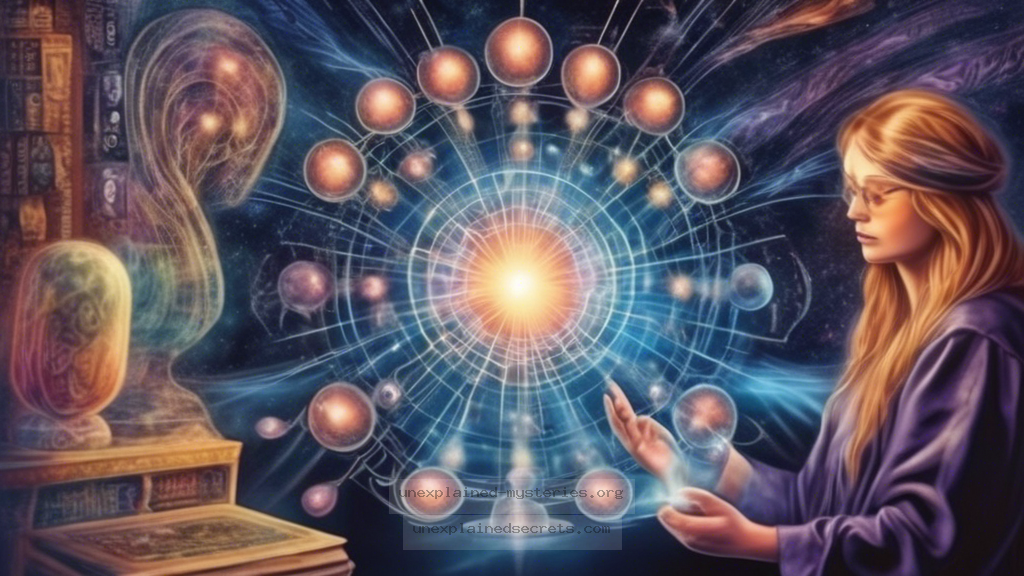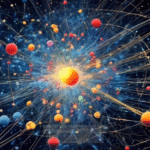Can Psychic Abilities Be Scientifically Proven or Are They Just a Modern-Day Myth?
Can Psychic Abilities Be Scientifically Proven or Are They Just a Modern-Day Myth?
Psychic abilities have fascinated humanity for centuries, spanning cultures and generations. From the mystical seers of ancient times to today’s television psychics, the allure of being able to tap into unknown forces has captured imaginations and provoked skepticism alike. This raises the pivotal question: can psychic abilities be scientifically proven, or are they simply a modern-day myth? The exploration of this question not only delves into historical accounts and documented cases but also navigates the complex web of scientific inquiry, belief, and human experience.
Understanding Psychic Abilities
Psychic abilities, often referred to as extrasensory perception (ESP), encompass a variety of phenomena. These can include telepathy (mind-to-mind communication), clairvoyance (gaining information about an object or event without the use of the known senses), precognition (foreseeing future events), and psychokinesis (manipulating objects with the mind). The existence of these abilities has been a topic of debate among scientists, psychologists, and the general public.
Historical Context of Psychic Phenomena
The belief in psychic abilities dates back to ancient civilizations. The Oracle of Delphi in Greece, for instance, was a priestess believed to possess the gift of prophecy, providing insights to those seeking guidance. Historical texts from various cultures, including the Egyptians and the Chinese, reference individuals who could predict the future or communicate with the divine. These accounts often blend the realms of religion and spirituality, making it difficult to untangle the threads of belief from the fabric of fact.
In the 19th century, the rise of Spiritualism brought psychic phenomena into the public eye. The Fox Sisters in New York claimed to communicate with spirits, leading to a movement that attracted many followers. Despite these historical instances, the scientific community remained largely skeptical, often attributing these claims to psychological tricks or environmental factors.
Scientific Investigations into Psychic Abilities
In the 20th century, the scientific investigation of psychic phenomena gained traction, primarily through parapsychology. This field, dedicated to studying unexplained phenomena, conducted numerous experiments to test claims of psychic abilities. One notable example is the work of Joseph B. Rhine at Duke University, who coined the term “ESP” and conducted card-guessing experiments using Zener cards. Though some results appeared promising, they were often criticized for lack of replicability and methodological weaknesses.
| Researcher | Study Focus | Findings |
|---|---|---|
| Joseph B. Rhine | Zener Card Experiments | Initial positive results; later criticized for methodology |
| Dean Radin | Global Consciousness Project | Suggested collective human consciousness affects random number generators |
| Rupert Sheldrake | Dog’s Anticipation of Owner’s Return | Observed dogs seemingly anticipating their owners’ arrival |
Core Concepts and Theories
Several theories attempt to explain the mechanisms behind psychic phenomena. The most prominent among these is the concept of “non-local consciousness,” which posits that consciousness is not confined to the brain and can interact with the environment in ways not currently understood by science. This theory aligns with quantum physics, which suggests that particles can exist in multiple states and locations simultaneously.
Another theory is the “collective unconscious,” proposed by Carl Jung, suggesting that all humans share a set of memories and ideas that can influence behavior and perception. This concept supports the idea that psychic abilities may tap into an interconnected web of knowledge and intuition.
Practical Implications of Psychic Research
The exploration of psychic abilities has practical implications beyond mere curiosity. For instance, some researchers suggest that honing intuitive skills may enhance decision-making processes in fields such as medicine, law enforcement, and even business. Intuition, often likened to a form of psychic ability, can guide individuals toward insights that are not readily apparent through logical reasoning alone.
Moreover, understanding psychic experiences can provide therapeutic benefits. Techniques like guided imagery, meditation, and mindfulness can foster a greater sense of self-awareness and emotional health. Some practitioners utilize these skills to help clients tap into their subconscious, potentially unearthing insights that could lead to healing.
Alternative Perspectives on Psychic Abilities
While many researchers advocate for a scientific approach to studying psychic phenomena, alternative perspectives abound. Some argue that the scientific method is ill-equipped to measure or quantify phenomena that may operate outside the conventional laws of physics. This perspective embraces a more holistic view, suggesting that psychic experiences are intrinsic to the human experience and deserve to be explored through spiritual and philosophical lenses as well.
Furthermore, cultural beliefs play a significant role in shaping perceptions of psychic abilities. In many indigenous cultures, individuals with psychic gifts are revered as shamans or healers, contributing to communal well-being. This cultural context can lead to a greater acceptance of psychic phenomena, contrasting sharply with the skepticism prevalent in Western scientific communities.
Common Misconceptions and Clarifications
There are several misconceptions surrounding psychic abilities that hinder open-minded discussions. One common belief is that psychic skills are innate and cannot be cultivated. While some individuals may naturally have a predisposition towards intuition, many practices and exercises can enhance these abilities over time.
Another misconception is that all psychic practitioners are frauds. While there are undoubtedly charlatans in any field, many individuals sincerely believe in their abilities and provide genuine insights to those seeking help. Recognizing the diversity within the psychic community can foster a more nuanced understanding of the subject.
Future Developments and Ongoing Research
As science continues to evolve, the exploration of psychic abilities is likely to remain a contentious topic. Advances in neuroscience may eventually offer insights into the brain’s potential to access information outside of conventional means. Additionally, interdisciplinary approaches that combine psychology, quantum physics, and spirituality may yield new findings that challenge existing paradigms.
Current research initiatives, such as the Global Consciousness Project, continue to investigate the potential connections between human consciousness and the environment. These projects aim to explore whether collective human emotions and intentions can influence real-world events, thereby lending credence to the idea of shared consciousness.
Conclusion: The Ongoing Mystery of Psychic Abilities
The question of whether psychic abilities can be scientifically proven or if they remain a modern-day myth is complex and multifaceted. The historical context, scientific investigations, core theories, and practical implications all contribute to a rich tapestry of inquiry that continues to unfold.
As skepticism and belief coexist, the exploration of psychic phenomena challenges our understanding of reality itself. Whether one views these abilities as tangible or illusory, they undeniably reflect a deep-seated human desire to connect with the unknown—to explore the boundaries of consciousness and the mysteries of existence.
Ultimately, the journey into the realm of psychic abilities invites us to question our perceptions, embrace the unknown, and perhaps, in the process, discover something profound about ourselves and the universe we inhabit.
Other Articles
Recent Posts
- What Happened to Flight MH370? The Conspiracy Theories That Still Haunt Us
- What Secrets Lurk Within the Walls of the Infamous Trans-Allegheny Lunatic Asylum?
- What Evidence Supports the Existence of Bigfoot in the Pacific Northwest?
- What Happened to the Indus Valley Civilization? Unraveling the Mysteries of Ancient Urban Life
- Can Telepathy Be Scientifically Proven Through Laboratory Evidence?







